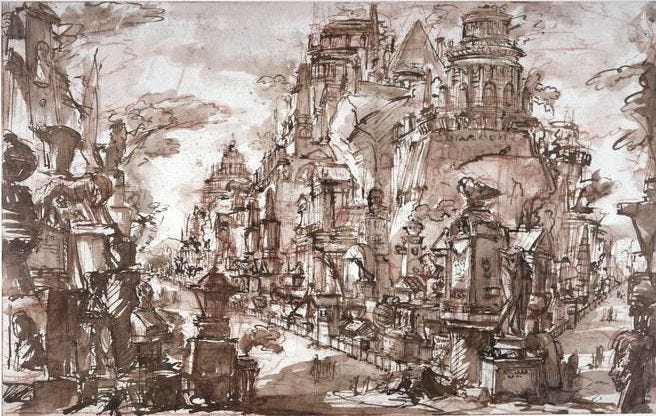If your characters open a door and walk through to find themselves in another world, a space-time continuum not joined to ours (or theirs) except by such a portal (or a hero-summoning spell, or whatever means of transportation there is), metaphysics is implicated.
Not that that may matter. If your characters aren't the type to sit around philosophizing about it, or the situation precludes their doing that instead of running away a lot, it may never arise.
Characters who do evince curiosity about the way the worlds are related may be more concerned with patterns and connections and other such practical elements than with the the deep principles. Especially if the circumstances make those things of immediate practical importance toward survival.
Even without the pressure of practical matters, characters whose curiosity turns to questions of metaphysics and ontology may easily be stymied. They may have to turn their attention to more practical and immediate concerns simply for a want of evidence. The door doesn't answer questions as it sits in wooden silence. Even the wise of the worlds may not know the truth of the matter.
If the characters have been summoned and meet the summoners -- that, also, may leave them without a source of information. If the summoners only knew to unlock the door and await whoever walked out, they would have no answers either. Even casting a spell by rote may leave the characters as ignorant as the hero.
What is this world relative to the original? How do the worlds originate? What connects them? Who connects them, what is the intention in it?
The Japanese isekai often paper over it with someone from a celestial bureaucracy staging a transmigration. Thus bringing up all sorts of metaphysical principles about the soul,1 and also the beings in charge of it.
This often shows quite clearly that it is a plot device, to start the story and nothing else.2 The bureaucracy is not celestial, or numinous, or powerful -- or, for that matter, visibly a bureaucracy. Even if the character is a special case to which a particular official devotes particular attention, a celestial bureaucracy has a lot on its hands. (Do things only need particular attention on special occasions? Do the worlds run on the whole without intervention from celestial bureaucrats, any more than mundane ones3? That's a metaphysical question.)
Dropping a fully grown character, as himself with a new character class, in the middle of what is clearly a game set-up raises a lot more metaphysical questions than it settles. It makes calling it a reincarnation so odd that a portal or spell works more elegantly, even as a plot device to be used and discarded.
Especially when the character is familiar with the game (or story, as the case may be). Even in the cases where the character was born and grew up in the world, until remembering a past life, the idea that her current life was a story in the old one -- who is responsible for this? Why did he do it? What is the purpose of it all? Is the purpose good or evil? Is the one responsible good or evil?
Did the world exist before the story was created? Did the story somehow create the world? Are there actual people in the world or just characters? Is returning home safe? Or possible?
The real issue with that plot device is that you can not use it and drop it.
Or shouldn't. I have read isekai where, by the third or fourth volume, the isekai aspects have been dropped. The viewpoint character forgets the other life, and not with the excuse that daily life in the other world will necessarily blur the memory of earlier days, even in another world. Oddly enough, they were, as fantasy works, superior to many other isekai I've read, but the opening mars the structure of the whole.
But in the works where the character is relentlessly aware that he's been dropped in a role-playing game, or a computer game, or a story, because he's endlessly wrestling with staying alive in it, he's endlessly reminded of the nature of his presence or (better artistically) using the knowledge from his prior life. (The most intriguing ones, in my experience, are where the heroine was re-incarnated as the villainess in a dating sim, or a novel, thus giving her a problem as well as knowledge.)
In particular, he's generally trying to stay alive.
So it does seem a bit baffling when he doesn't consider the intentions -- good or evil -- of those who brought him in, or the possibility that all his work could go for naught if he gets moved on again. Not even to dismiss it as something beyond his power, as this world is beyond his original world.
By the change of worlds, metaphysical implications were brought on stage. It is unwise to just ignore them.
Philosophy In Fantasy And Avoiding It
Ah, metaphysics. The fundamental, essential underpinnings of your world-building. The principles on which your worlds and wonders, your monsters and magic rely.
with all the problems of that
Carrying Through
One easy way to detect a plot device in a story is to consider whether something has the effects and consequences that would reasonably flow.
Bureaucrats As Bothers
Exactly how much trouble can that bureaucrat cause you? With his rules and his clerks, his records and his regulations?








That is one of my favorite fantasy bits, having other dimensions/worlds that the characters can access. Not too easily or quickly, but they can still get there and back. I do wonder something. I've seen dozens of stories where someone goes from a mostly mundane Earth to some fantastic realm and has adventures. Has anyone ever done the reverse, where someone comes from a fantasy realm to Earth and gets in trouble there as they seek to return home?